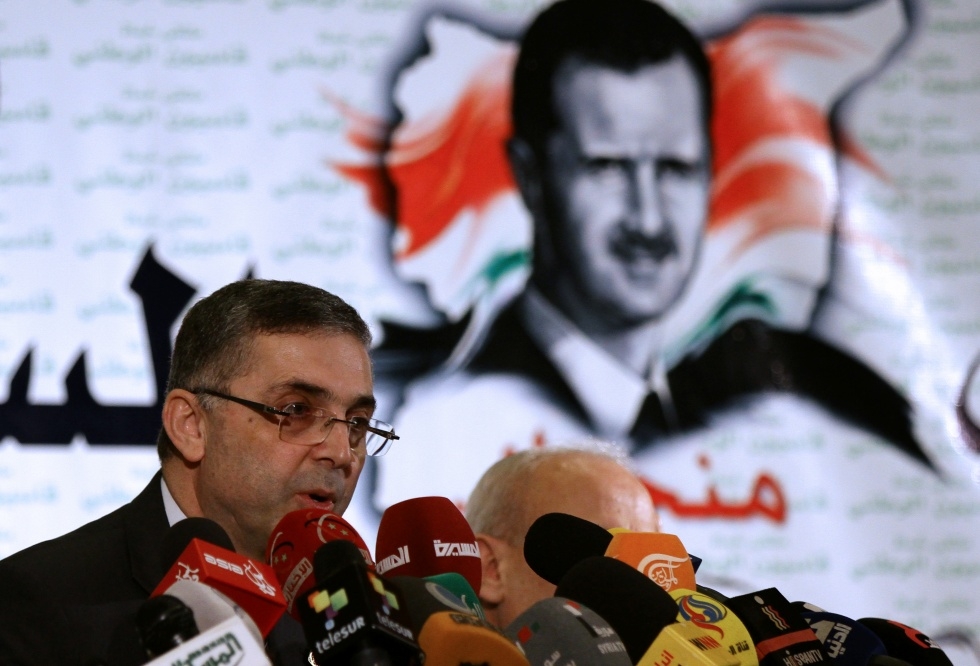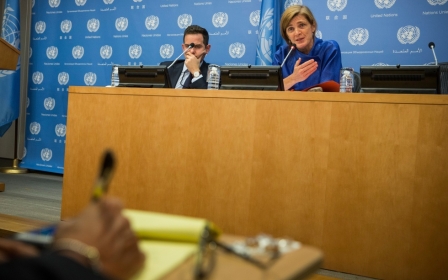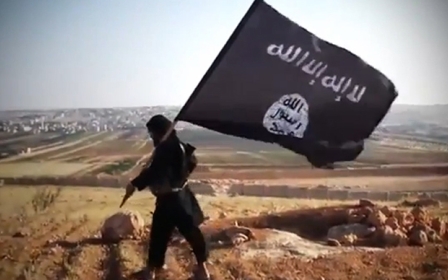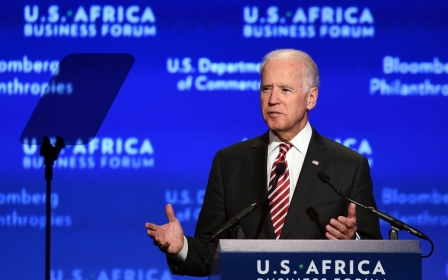Syria warns against American anti-IS air strikes

The Syrian government of Bashar al-Assad warned against any military strikes against Islamic State (IS) militants in the Syrian side of the border, saying that such action would constitute "an attack on Syria" itself.
The United States pressed Arab nations Thursday to join President Barack Obama's expanded campaign against militants in Iraq and Syria.
"Any action of any kind without the consent of the Syrian government would be an attack on Syria," National Reconciliation Minister Ali Haidar said.
Haidar did not say what response pro-Assad forces might have to any unilateral US military action in Syria.
"Under international law there must be cooperation and cooperation with Syria and Syrian consent for any action, whether military or non-military on Syrian territory," he added.
Syria's opposition welcomed Obama's strategy, but urged Washington to take action against Assad as well as militants.
The opposition National Coalition said it had "long called" for action against IS and "warned time and again of the growing threat of this extremist group".
The US announcement was praised by Baghdad, where a unity government was formed on Monday.
"Iraq welcomes Obama's strategy about standing with it in its war against (IS) and the terrorist groups," said the office of Prime Minister Haidar al-Abadi.
Russian objection
But Russia said unilateral action would be a blatant violation of international law.
"The US President has directly announced the possibility of strikes by American armed forces against positions of the Islamic State in Syria without the consent of its legal government," said Alexander Lukashevich, a spokesman for the Russian foreign ministry.
"In the absence of an appropriate decision of the UN Security Council, such a step would become an act of aggression, a crude violation of the norms of international law," Lukashevich said in televised remarks.
He accused the United States of "double standards".
"While on the one hand helping the Iraq government to confront Islamist militants, Obama is once more asking Congress for 500 million dollars to support the Syrian armed opposition, which as a whole is little different from the radicals in the Islamic State," Lukashevich said.
Washington has made it clear it will not cooperate with pro-Assad forces.
In the Saudi port city of Jeddah, US Secretary of State John Kerry was meeting his counterparts from 10 Arab countries and Turkey to press them to join a broad coalition against IS militants.
Obama said late Wednesday he had ordered the US military to expand its operations against IS.
"Our objective is clear: we will degrade, and ultimately destroy, ISIL through a comprehensive and sustained counter-terrorism strategy," Obama said in a television address, using an alternative acronym for the group.
"I will not hesitate to take action against ISIL in Syria, as well as Iraq."
Obama announced the dispatch of another 475 military personnel to help train Iraqi forces to take on IS, bringing the total number of American troops in the country to 1,600.
Broaden the anti-IS coalition
But he stressed the campaign would not be a repeat of the exhausting ground wars fought by US troops in the past decade.
Instead, Washington is looking to empower partners on the ground like Iraqi, Kurdish and Syrian rebels to fill in territory opened up by its air power.
Key to that strategy will be improving the effectiveness of Syrian rebels, and Obama called on Congress to swiftly authorise an operation to train and equip moderate fighters.
In Jeddah, Kerry was seeking crucial backing for the US campaign, meeting his counterparts from the Gulf monarchies, Lebanon, Egypt, Iraq, Jordan and NATO member Turkey.
"Many of the countries are already taking action against ISIL," a State Department official said.
"But the trip by the Secretary is going to broaden the coalition and bring it into more focus and intensify the lines of effort."
The official said Saudi Arabia would be especially important to the effort "because of their size and economic importance but also because of their religious significance with Sunnis".
The "train and equip programme" for Syria's rebels would be a particular talking point with the Saudis, the official added.
New MEE newsletter: Jerusalem Dispatch
Sign up to get the latest insights and analysis on Israel-Palestine, alongside Turkey Unpacked and other MEE newsletters
Middle East Eye delivers independent and unrivalled coverage and analysis of the Middle East, North Africa and beyond. To learn more about republishing this content and the associated fees, please fill out this form. More about MEE can be found here.




